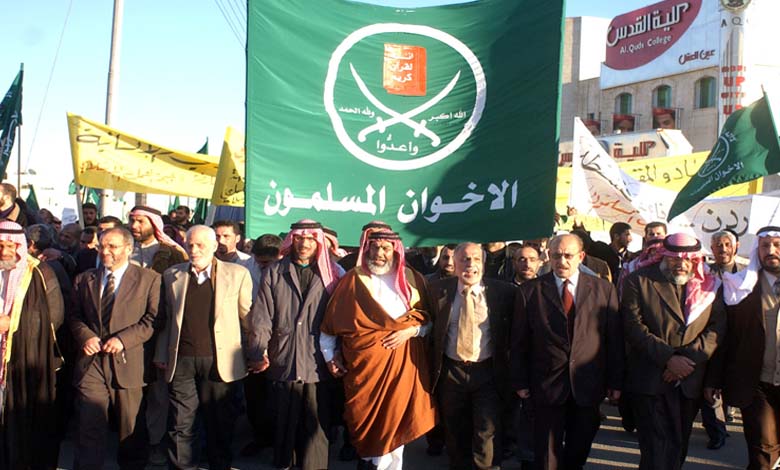A Strategy Adopted Throughout Their History: The Muslim Brotherhood in a Latent Phase, Awaiting Weakening Regimes

The Muslim Brotherhood adopts a policy of latency and confrontation, a strategy they have employed throughout their history to deal with different political regimes. When the state tightens its grip, the group shifts to clandestine operations, avoiding direct confrontation, and focusing on infiltrating the masses and organizing its ranks, according to Egyptian journalist Karam Gabr.
-
The Muslim Brotherhood and Lies: The group promotes old videos to deceive Egyptian public opinion
-
Is lying a fundamental doctrine in the Muslim Brotherhood?
In an article published on the Akhbar Al-Youm website, Gabr explains that the group resorts to confrontation when regimes weaken, opting for direct clashes with the ruling system, whether peaceful or violent.
He pointed out that the Brotherhood fails to learn from their “false power” displays, which have led them to turn against every political regime, always placing the country in a cycle of latency and confrontation. After allying with King Farouk and chanting “God is with the King,” they conspired against the palace, assassinated Al-Khazindar and Al-Nuqrashi, and the “honeymoon” ended with the assassination of their leader Hassan Al-Banna and the dissolution of their organization.
-
The Muslim Brotherhood Continues to Block Roads and Impose Levies and Fees on Yemenis
-
Muslim Brotherhood Leaks… Book Analyzes the Role of Drama in Exposing Brotherhood’s Plots
According to Gabr, historical documents reveal that they have claimed false struggles since their inception, exploiting the Palestinian cause. Not a single member of the Muslim Brotherhood participated in the resistance war at the Suez Canal, as the colonizers established this organization to undermine nationalist and resistance movements in Egypt. Nonetheless, they falsely claimed to have sacrificed martyrs and funds.
Ahmed Hussein, leader of the Young Egypt Party, affirmed that the Brotherhood did not send any fighters to Palestine during the 1948 war. He described Hassan Al-Banna as a liar and hypocrite, reiterating that the Brotherhood was going to Palestine but never sent fighters or spent a penny.
-
Terrorism: A Product of the Muslim Brotherhood and the Houthis… Yemenis React to Major Massacres in the South
-
What are the reasons behind the internal conflicts and divisions within the Muslim Brotherhood? What happened?
Gabr concluded that the Brotherhood adheres to the Machiavellian theory of “the end justifies the means,” using all forms of deception, duplicity, and betrayal to achieve their goals, even if illegitimate, disregarding ethics and moral values.
Moreover, Arab experts and academics agree that political Islam movements remain strongly present in Arab societies, currently going through a phase of latency. They note that the “Al-Aqsa Flood” operation has intensified religious mobilization in favor of these groups, primarily the Muslim Brotherhood in Egypt.
-
What are the similarities between the “Assassins” sect, the Muslim Brotherhood, and the organizations that emerged from them?
-
A researcher in political Islam reveals the Brotherhood’s evasions to conceal their sources of funding… Details
-
How do the economic crises of the Muslim Brotherhood affect the group in Europe?












